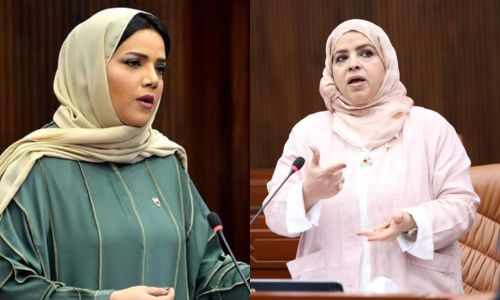Legislators push to lower Bahrainis’ voting age from 20 to 18 ahead of 2026 elections
TDT | Manama
The Daily Tribune – www.newsofbahrain.com
Email: mail@newsobahrain.com
Legislators are pushing to lower the voting age from 20 to 18 ahead of the parliamentary elections scheduled for 2026, with a formal debate set for upcoming sessions.
The move aims to bring young Bahrainis into the political process, with nearly two-thirds of the population now under 35, offering a new voice to a generation eager to weigh in on the policies that shape their lives.
This proposal, designed to engage young Bahrainis in decision-making, is supported by Shura Council members Dalal Jassim Al Zayed, Sabika Khalifa Al Fadhalah, and three others.
Advocates argue that Bahrain’s youth are prepared for this responsibility with the awareness and sense of duty it requires. As reported by The Daily Tribune on 23rd September, nearly two-thirds of Bahrain’s people are now under 35.
Surge
This youthful surge suggests a society driven by new ideas and energy, ready to take on more active roles in areas such as work, trade, and social issues. For young people stepping into the workforce, having a say in decisions that guide job growth isn’t just a preference — it’s essential.
This move comes as Bahrain’s democratic process sees more active involvement, with a strong 73 per cent voter turnout in recent elections. Proponents of the change believe lowering the voting age is a logical next step, allowing young people to influence decisions that shape their lives.
“Bahrain’s changing democratic values have shown us that young people have what it takes,” the plan notes, reflecting a growing belief that youth can play an important part.
Moreover, with many young Bahrainis on the brink of setting up their own homes, voting on housing and urban planning would allow them to influence affordable living options.
Lowering the voting age isn’t just about giving young people a voice — it’s about allowing them to shape a future that suits them, where they can settle, grow, and lead. The plan aligns with current Bahraini laws that set 18 as the age of responsibility.
At this age, Bahrainis can already form groups, take on leading roles, and even start businesses. They are also allowed to apply for driving licences, supporting the view that they are ready to take on serious duties.
The plan also echoes His Majesty King Hamad bin Isa Al Khalifa’s focus on young people, who has called for greater attention and support for Bahrain’s youth.
“This is a step towards involving young people as true partners in Bahrain’s growth,” the proposal explanatory note reads, following HM the King’s recent remarks at the start of the new parliamentary session, where he stressed the importance of developing youth skills and strengths.
Societies
Japan and South Korea recently lowered their voting ages from 20 to 18, both aiming to give younger voices a place in steering their societies.
Japan made the change in 2015, responding to concerns over low youth turnout and an ageing population. South Korea followed in 2019, encouraged by strong public support and pressure from youth groups.
Both nations saw this shift as a way to bring young people into the fold and reinforce their say in governance. If passed, the rule would place Bahrain alongside other countries in the region, like Egypt and Jordan, where 18-year-olds already have the right to vote.
The plan argues that if young people are trusted with driving, they should also be trusted to choose their leaders. “If 18-year-olds are trusted to drive, they’re surely ready to choose leaders who will stand up for them,” it reads.
Giving 18-year-olds the vote would also instil a sense of duty and pride in their communities, encouraging them to take an active role in directing the way forward.
Drivers of change
The push mirrors a changing Bahrain, where young people are seen not just as future voices, but as present drivers of change, ready to make their mark.
With young people making up a large part of the population, supporters say this change would give them a stronger voice in the issues that impact them, building a sense of responsibility and care for their society from an early age. The plan has two main parts: one formally lowers the voting age to 18, and the other sets out how this change will be put in place.
Related Posts

